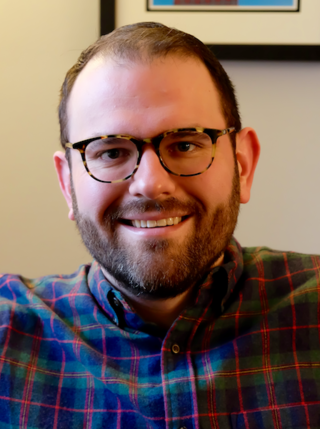Personality
Personality's Impact on Stress During the Pandemic
Research shows how the Big 5 personality traits may predict COVID stressfulness.
Posted March 15, 2021 Reviewed by Davia Sills

The differences in the genetic makeups and personality traits of every human being lend to the diversity and uniqueness of how we respond to life's daily ups and downs. In this interview, Cort Rudolph and Hannes Zacher share how our individual differences, specifically our personalities, have affected and changed our stress levels during the pandemic.
Cort W. Rudolph is an associate professor of Industrial and Organizational Psychology at Saint Louis University. He received a B.A. from DePaul University and an M.A. and Ph.D. from Wayne State University. Cort’s research focuses on a variety of issues related to the aging workforce, including applications of lifespan development theories, well-being and work longevity, and ageism/generationalism.
He also has interests in statistical and methodological advancements, particularly in a meta-analysis, and emerging topics in open science practices. His work has been variously published in impactful and highly ranked journals. His recent co-edited book, Work Across the Lifespan, is available from Academic Press.

Hannes Zacher is a professor of work and organizational psychology at Leipzig University in Germany. He earned his Ph.D. from the University of Giessen in 2009 and subsequently worked in academic positions in Australia and the Netherlands. In his research program, he investigates aging and career development, occupational health and well-being, and proactive and adaptive work behavior.
His research is well supported through competitive grants and industry funding. Together with Dr. Cort W. Rudolph (Saint Louis University), he received a major grant from Volkswagen Foundation to conduct a longitudinal study across two years on the COVID-19 pandemic, work, and well-being.
Jamie Aten: How did you first get interested in this topic?
Cort Rudolph & Hannes Zacher: This study is based on a larger longitudinal data collection effort that began in December of 2019. Originally, we planned to conduct a study of aging and health at work, with only four time points. We conducted the first two surveys (December 2019 and March 2020, constituting over 1,500 full-time employees from all over Germany and representative in terms of age, gender, and industry) as planned, but then quickly adapted our research plan once we saw the rapid onset of the pandemic, and in particular how it was changing the nature of work.
As such, in March 2020, we made the decision to adapt our study: for example, by focusing on participants’ experiences and behaviors related to COVID-19. We also shifted to monthly data collections, with surveys collected in the first week of each month that allow us to study how this crisis has influenced people and their social and work environment.
To support this work, my collaborator Dr. Hannes Zacher (based at Leipzig University) and I also applied for funding to continue this study until the end of 2021. We received a very generous grant from the Germany-based Volkswagen Foundation, which has allowed us to do so. At the beginning of April 2021, we will collect the 15th wave of this study, which will again survey respondents from all previous waves.
JA: What was the focus of your study?
CR & HZ: In this study, we focused on the Big Five personality traits (i.e., conscientiousness, agreeableness, emotional stability, openness, and extraversion) as predictors of individual differences and changes in the perceived stressfulness of the COVID-19 pandemic between early April 2020 and early September 2020. This is a unique timeframe because it includes the first national “lockdown,” the period of “easing” of restrictions, and the summer vacation period. Data were collected from n = 588 full-time employees, who provided baseline data on their personality traits in early December 2019, and then later provided data on perceived stressfulness of the COVID-19 pandemic at five time points spanning six months.
JA: What did you discover in your study?
CR & HZ: Consistent with expectations based on event and transition theories, our results showed that, on average, perceived stressfulness declined between early April 2020 and early September 2020. Moreover, this effect was stronger between early April 2020 and early July 2020. Our hypotheses based on the differential reactivity model of personality and stress were partially supported. We found that emotional stability (i.e., a trait associated with calmness and low emotional reactivity) was associated with lower stressfulness and extraversion (i.e., a trait associated with outgoingness and social-interactive tendencies) associated with higher average levels of perceived stressfulness. Finally, extraversion was associated with increases (i.e., positive trajectories) in perceived stressfulness between early April 2020 and early July 2020 and decreases (i.e., negative trajectories) in perceived stressfulness between early July 2020 and early September 2020.
JA: Is there anything that surprised you in your findings or that you weren't fully expecting?
CR & HZ: One surprising finding was that the average decrease in perceived stressfulness that we observed, particularly between April 2020 and early July 2020, was not as strong as we would have anticipated. This suggests that although on average, declines in stressfulness were observed, there is quite a bit of variability in perceived stressfulness left to be explained.
JA: How can readers use what you found to help others amidst this pandemic?
CR & HZ: One potential takeaway here is that stress during the pandemic is not uniformly perceived or experienced. Our results suggest that there are dispositional factors, especially personality traits such as extraversion and emotional stability, that play a key role in people’s levels of stress and changes in stress over time. Our findings may hint that stress-reduction interventions could be tailored to specific individual differences, especially personality traits such as extraversion and emotional stability.
Counselors and social workers, for example, might want to consider how such factors contribute to the development of stress over time when working with their clients. However, more broadly, this study serves as a reminder that not everyone is experiencing the pandemic in a uniform way and that we need to be cognizant of how people’s experiences with the pandemic have been shaped by their individual qualities.
JA: What are you currently working on that you might like to share?
CR & HZ: This is an ongoing study, and as suggested, we will collect the 15th survey at the beginning of April. We are currently working on a paper that examines changes in family demands and satisfaction with family life during the pandemic, and especially the role that having young children and partners plays in the development of these variables over time. We also have a paper that investigates discontinuities and changes in work performance during the pandemic.
We have published another study that looks at individual differences and changes in subjective well-being over the early stages of the pandemic. Moreover, together with eight co-authors from the United States and Europe, we have published a paper on the implications of pandemics for research and practice in industrial and organizational psychology. Finally, Dr. Hannes Zacher and I have written two papers (the first here and the second here) that caution against the declaration and labeling of a “COVID-19 Generation,” especially because such labels support age-based stereotypes and discrimination.
References
Zacher, H., & Rudolph, C. W. (2021). Big Five Traits as Predictors of Perceived Stressfulness of the COVID-19 Pandemic. Personality and Individual Differences, 110694. https://doi.org/10.1016/j.paid.2021.110694




